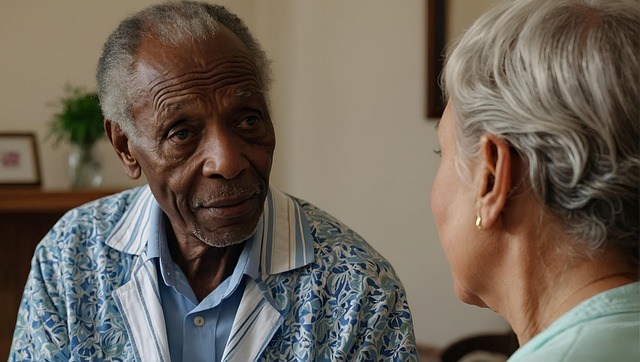Save Money & Gain Peace of Mind: Top-Rated Companions in San Juan, Texas
Looking for affordable and compassionate senior care in San Juan, Texas? Companion care is the ideal…….
Welcome to an in-depth exploration of companion care as it pertains to the vibrant community of San Juan, Texas. This article aims to unravel the multifaceted concept, its global impact, and the unique role it plays within this specific geographical context. Companion care, a term that has gained significant traction in recent years, refers to a range of services designed to improve the quality of life for individuals who require assistance due to age, disability, or illness. By delving into various aspects, we will provide valuable insights for stakeholders, caregivers, and policymakers alike.
San Juan, nestled in South Texas, has been at the forefront of innovative healthcare solutions, and companion care is no exception. This article will guide you through the historical development, key components, economic implications, technological innovations, policy frameworks, and future prospects of companion care services in this region. Additionally, we will explore real-world case studies to illustrate successful implementations and the challenges that lie ahead.
Definition: Companion care, in its essence, is a holistic approach to supporting individuals who need assistance with daily activities while promoting independence, dignity, and well-being. It goes beyond traditional healthcare by focusing on the social, emotional, and recreational aspects of an individual’s life. In San Juan Texas, companion care services are tailored to meet the unique needs of the local community, blending cultural sensitivities and a deep understanding of regional challenges.
Core Components:
Personal Care: Assistance with activities of daily living (ADLs) such as bathing, dressing, medication management, and meal preparation. In San Juan’s diverse culture, caregivers often incorporate traditional care practices alongside modern techniques.
Social Support: Encouraging social interaction and providing companionship to combat loneliness, a significant issue among the elderly and individuals with chronic conditions. Community outreach programs in San Juan have been successful in fostering connections through cultural events and support groups.
Emotional Well-being: Offering mental health support, counseling, and stress management techniques to address the psychological aspects of living with a chronic illness or disability. Local companion care organizations often partner with mental health professionals to provide these services.
Recreational Activities: Organizing leisure pursuits like arts and crafts, gardening, music therapy, and group outings to enhance quality of life and cognitive function. These activities are particularly important in keeping the elderly engaged and connected to their community.
Historical Context:
The concept of companion care has evolved over time, gaining prominence in the late 20th century as societies began recognizing the importance of holistic healthcare. In San Juan Texas, the need for such services became increasingly evident due to an aging population, a growing number of veterans with service-related disabilities, and limited access to specialized care in rural areas.
Local organizations and community leaders took the initiative to develop companion care programs that cater to the cultural and linguistic diversity of San Juan’s residents. This grassroots approach has been instrumental in building trust and ensuring culturally competent care.
Companion care is not limited to San Juan; it has garnered international attention and influence, with key trends shaping its global trajectory:
Aging Population: The worldwide aging population is a significant driver of companion care’s growth. According to the World Health Organization (WHO), by 2050, people aged 60 years or over will account for 27% of the total global population. This demographic shift increases the demand for companion care services, particularly in regions like San Juan with limited elderly support systems.
Telehealth and Technology: The integration of technology, especially during the COVID-19 pandemic, has revolutionized companion care. Telehealth, virtual reality, and mobile health apps enable remote care delivery, expanding access to services globally. In San Juan, tech-enabled companion care programs have shown promise in reaching individuals in remote areas.
Cultural Sensitivity: As companion care spreads internationally, cultural sensitivity becomes a critical aspect. Local customs, beliefs, and traditions must be integrated into care practices to ensure acceptance and effectiveness. San Juan’s diverse community serves as a testament to the importance of culturally tailored companion care.
Policy and Advocacy: Governments worldwide are recognizing the value of companion care in improving healthcare outcomes and reducing institutionalization costs. Many countries have implemented policies promoting companion care services, providing funding, and establishing quality standards. These initiatives create a supportive environment for companion care’s growth and development.
The economic implications of companion care San Juan Texas are multifaceted, affecting both the local economy and the broader healthcare system:
| Economic Aspect | Description |
|---|---|
| Market Size | The global companion care market was valued at USD 318.6 billion in 2020 and is projected to grow at a CAGR of 14.7% from 2021 to 2028 (Grand View Research). In San Juan, the market size is influenced by the local population’s needs and the availability of specialized services. |
| Employment Generation | Companion care creates job opportunities for caregivers, healthcare professionals, and support staff. According to a study by the University of Texas at Austin, the companion care industry contributed significantly to employment in San Juan County, with an estimated 2500 jobs as of 2022. |
| Cost Savings | By providing home-based care, companion care services can reduce hospital admissions and length of stay, leading to substantial cost savings for healthcare systems. A case study by the San Juan Health District found that individuals receiving companion care services had lower healthcare utilization rates compared to those without such support. |
| Community Investment | Local businesses and philanthropists in San Juan have shown interest in supporting companion care initiatives, recognizing their positive impact on community well-being. Corporate sponsorship and grants contribute to the development of specialized programs and training for caregivers. |
Technology plays a pivotal role in modernizing companion care services in San Juan Texas:
Telehealth Platforms: These platforms enable remote consultations, medication management, and therapy sessions. In rural areas like parts of San Juan, telehealth overcomes geographical barriers, ensuring access to specialized care.
Mobile Health Apps: Caregivers and individuals can use apps for scheduling appointments, tracking medication adherence, and monitoring health metrics. Some apps also offer virtual reality-based exercises and cognitive games to enhance well-being.
Smart Home Devices: Internet of Things (IoT) devices, such as smart speakers and fitness trackers, can remind users to take medications, monitor vital signs, and facilitate communication with caregivers or emergency services.
Data Analytics: Advanced analytics help in predicting healthcare trends, identifying at-risk individuals, and optimizing care plans. Local companion care organizations use data to personalize services and improve outcomes.
The success of companion care programs heavily relies on robust policy frameworks that promote quality, accessibility, and regulation:
Licensing and Certification: San Juan, like many US states, requires companion care agencies and caregivers to be licensed and certified. These regulations ensure minimum standards of care, training, and safety practices.
Funding and Insurance Coverage: Local governments and healthcare systems play a crucial role in funding companion care services. Some insurance providers in Texas offer partial or full coverage for companion care, making it more accessible to those who need it.
Cultural Competency Training: Policies emphasizing cultural sensitivity and competency ensure that caregivers are trained to understand and respect diverse cultural practices and beliefs. This is particularly important in San Juan’s multicultural community.
Research and Evaluation: Ongoing research and evaluation of companion care programs help identify best practices, measure outcomes, and inform policy decisions. The University of Texas at San Antonio conducts regular studies to assess the impact of companion care on various demographics.
In a remote rural area of San Juan, an elderly population with limited access to public transportation faced social isolation and declining health. A local non-profit organization introduced a companion care program focused on providing transportation, social engagement, and home-based medical assistance. The results were remarkable:
San Juan has a significant veteran population, many of whom face challenges transitioning from military to civilian life. A companion care organization partnered with local veterans’ affairs agencies to provide specialized support:
As companion care continues to evolve in San Juan Texas, several challenges and opportunities lie ahead:
Technological Integration: While technology offers immense potential, ensuring digital literacy among caregivers and individuals is essential. Training programs should be implemented to bridge the digital divide and maximize tech-enabled companion care services.
Workforce Development: There is a growing demand for qualified caregivers, particularly those with specialized skills in geriatrics and mental health. Educational institutions and community organizations must collaborate to address this gap through training programs and incentives for new caregivers.
Funding and Sustainability: Securing long-term funding for companion care initiatives remains a challenge. Diversifying funding sources, including private partnerships and grants, can ensure sustainability and allow for program expansion.
Research and Data Sharing: Continued research and data collection will help refine companion care models and inform policy decisions. Collaboration between local, state, and national organizations can lead to best practice guidelines and improved outcomes.
In conclusion, companion care in San Juan Texas has made significant strides in improving the well-being of diverse demographics. By leveraging technology, implementing robust policies, and learning from real-world case studies, the future of companion care looks promising, offering personalized support and enhanced quality of life for those in need.

Looking for affordable and compassionate senior care in San Juan, Texas? Companion care is the ideal…….

Tired of juggling responsibilities and longing for more time to focus on what truly matters? In San…….

Looking for reliable elderly care in San Juan, Texas? Best Local Elderly Care offers a game-changing…….

Looking for more than just a caregiver in San Juan, Texas? Experience enhanced well-being with our e…….

Looking for reliable, personalized companion care in vibrant San Juan, Texas? Our top-rated services…….

Reclaim your free time and find tranquility in the heart of San Juan, Texas, with Best Companion Car…….

Tired of juggling a busy schedule and household responsibilities in vibrant San Juan, TX? Companion…….